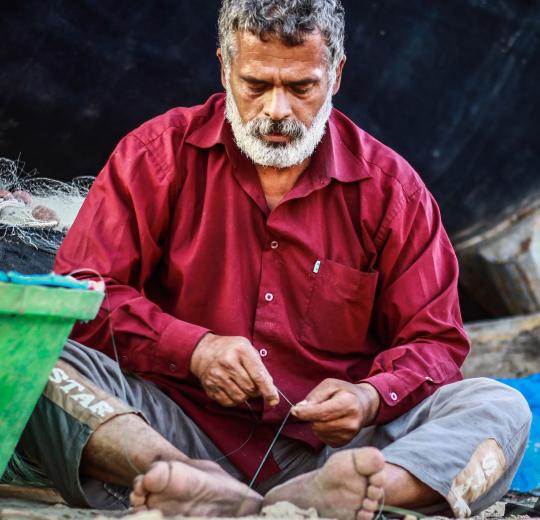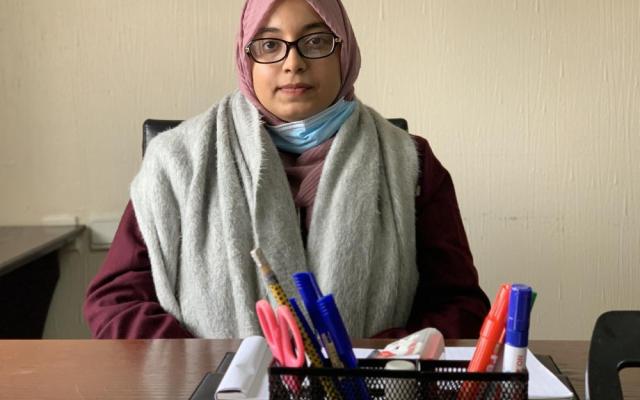Our factory was destroyed twice, first in 2008 and then in 2014. In 2008 our losses totaled $730,000, and we only received $40,000 to help rebuild. In 2014 we lost everything. Losses were assessed at $3 million, and we have received no assistance in rebuilding.
We have used our own funds to restart work, but replacing equipment has been hard. We can’t replace all of our machinery. No new equipment can be imported because of the blockade. We have had to replace ruined equipment with old used equipment that needed to be rebuilt.
We use recycled plastic to produce our pipes. Three months ago it was normal for us to import the raw plastic needed to make our product. Now the plastic we need has been called a “dual use” item and is banned from entering Gaza. These are our last supply of raw materials. When these run out, we may not be able to continue production if we can’t import new resources.
"These are our last supply of raw materials. When these run out, we may not be able to continue production."
Most factories in Gaza are designed to produce goods for export, but that isn’t possible now. Even if we had power at all times we couldn’t make our product for more than eight hours per day because there is no local market for more of our product.
Before 2008 we had 34 workers. In a normal situation we would have around 26 employees working full time. Now we employ only 12 people, and they only work 18 days per month even with limited hours. We can't export our products, and the local market won't take more product even if we could make more.




